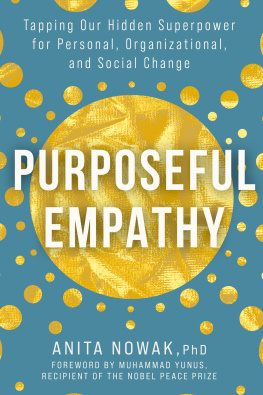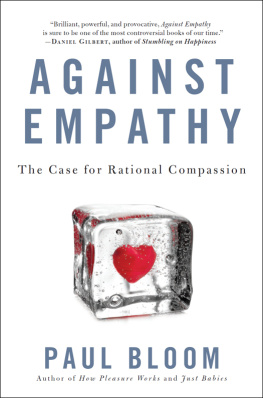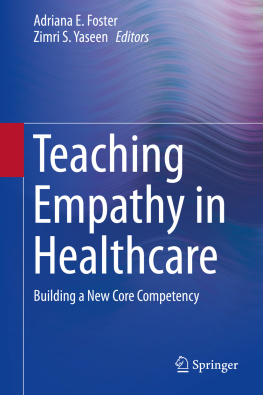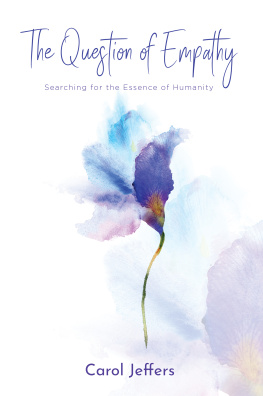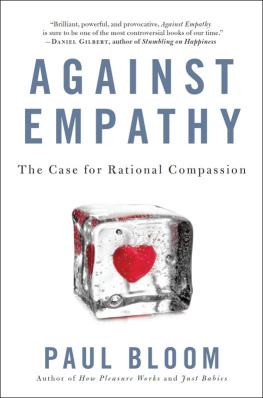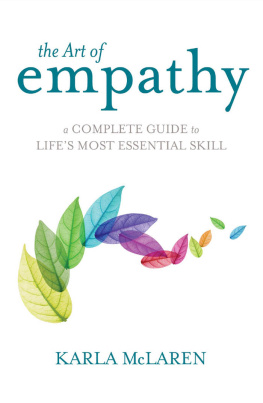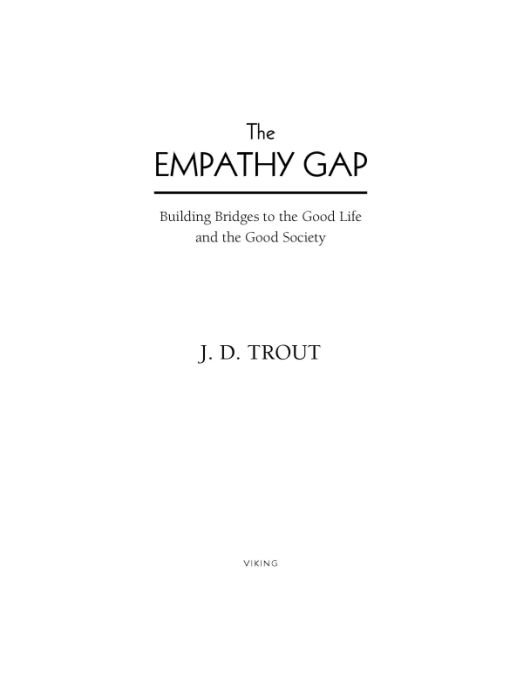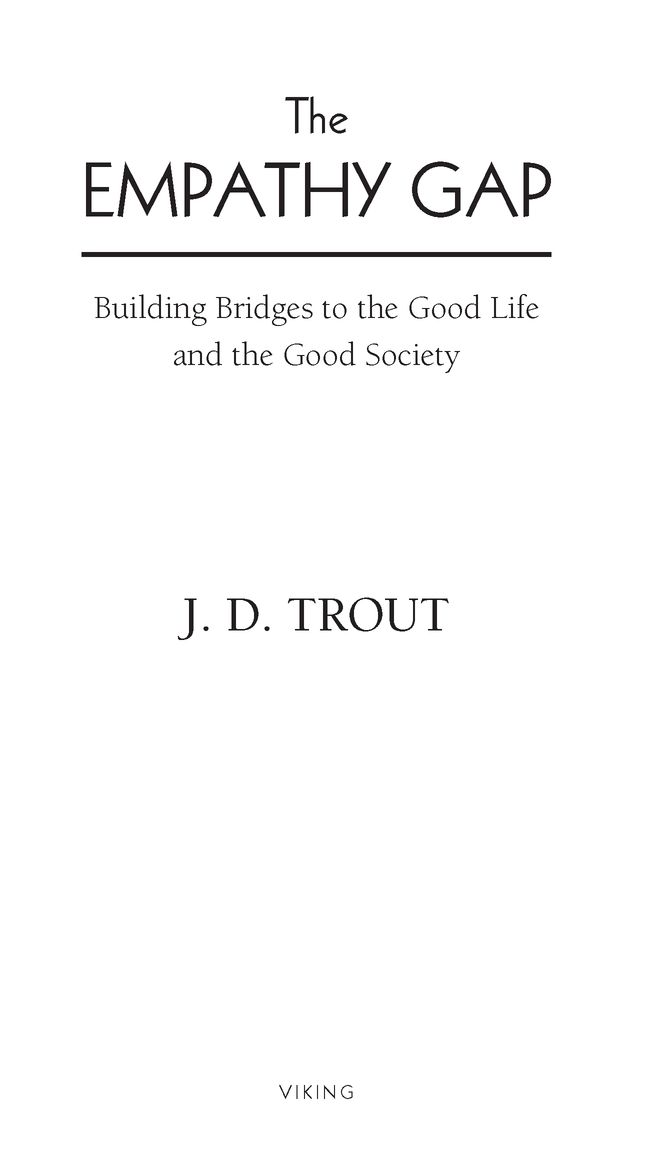Table of Contents
ALSO BY J. D. TROUT
Measuring the Intentional World: Realism, Naturalism, and
Quantitative Methods in the Behavioral Sciences
Epistemology and the Psychology of Human Judgment
(with Michael Bishop)
The Theory of Knowledge: A Thematic Introduction
(with Paul Moser and Dwayne Mulder)
EDITED BY J. D. TROUT
The Philosophy of Science
(with Richard Boyd and Philip Gasper)
Contemporary Materialism
(with Paul Moser)
For Janice
Introduction
Decency to Spare
AS THE UNITED STATES OPENED THE WAR IN IRAQ IN 2003, another kind of news was spreading on the homefront: Military families across the United States were the uncomfortable neighbors of payday loan establishments. The high-interest, short-term loans offered by these lenders are designed to cover expenses till payday when the paycheck comes up short. The typical payday borrower eventually hands over $793 for a $325 loan. and Point Loma were by 2005 growing more dependent on, and dismayed by, these fast-cash storefronts clustering near military bases.
When we hear about such alarming and regrettable imbalances of opportunity, our tendency is to fight to a stalemate. We try to stop the offense, even if we cannot achieve a durable remedy. Americans appreciate the need sometimes to be protected from our own temptations and vulnerabilities, and yet we cherish the very freedom that allows a good to lure us to our ruin. The mythic American vision of self-determination might maintain that with better budgeting, and more careful shopping habits, some people could avoid payday loans. This is not to say that payday loans are never a good option. Taking out a payday loan may be a good decision only because all the other choices you might consider to relieve your financial duress, such as foreclosure, theft, or prostitution, are worse. After all, good is a relative term. Some good decisions are just the best among an undesirable lot, the consequence of making the most out of what we have. But when we face them, such choices are not free; they are forced. They may be rational, but they sure arent voluntary. We might ask why the worlds most affluent society forces its citizensand especially its soldiers in uniformto make such choices. A decent society avoids doing so.
These are demographic facts, but there are real people behind them. Payday loan scandals are a microcosm of failed policy wrapped around unconscious bias. Each example represents millions of personal tragedies. Bank lending regulations ensnare consumers who, stoked by desperation, borrow overconfidently and recklessly, and in doing so, irrationally discount their futures. Payday loans may even cause personal bankruptcy. steering payday debtors inevitably toward further dead-end credit vehicles. The question remains whether those who rely on these loans can find suitable substitutes for meeting their monthly needs.
Overconfidence, and the tendency to discount the future, are far more likely to destroy fundamental hopes and prospects if a person is poor. But these cognitive frailties are not just a poor persons hubris. Wealthy investors, too, are dramatically overconfident in their beliefs that their intuition is reliable and their judgment correct. Indeed, the extent of the 2007-2008 subprime mortgage crisis owed much to the overconfidence of professionals. It was a punishing gamble.
Like a veteran gambler, every savvy investor has a system. Anyone who plays the market is sure that he possesses some unique insight that puts him out in front of the other guy. But just as a gambler always loses to the house in the long run, an overconfident investor will eventually get burned. Clever investors and fund managers characteristically pride themselves on anticipating the slightest uptick or downturn in their stocks, and in their ability to time their trades precisely. Ironically, the cleverer they think they arethe more actively they buy and sellthe more likely they are to lose. Data consistently show that overmanagement of ones stocks, with frequent and aggressive trading, will result directly in diminished returns. Conversely, a bundle of thoughtfully chosen stocks left untouched for a period of yearsin an index fund, saywill steadily increase in value as the markets overall value increases.
Short-term, overconfident thinking causes the average family to lose roughly a quarter of a million dollars over a lifetime . Why do so many millions of people continue to insist on trying to outsmart the markets? Quite simply because they believe they can, and they believe so in the face of overwhelmingalbeit counterintuitiveevidence to the contrary.
A normal reaction to hearing about these all-too-human foiblessimple investment overconfidence and seduction by payday loansis empathy. Peoples wills are powerless in the grip of overconfidence or in the face of desperation. We can hardly blame military families for choosing as best they can from a slate of terrible options. The natural thing to do is empathize with them, to feel their desperation and understand their position. And knowing that the world changes in ways that are harmful and surprising, an effective empathy must be vigilant; it must survey the social landscape for similar cases in which the market, together with existing laws, could crush the prospects of citizens burdened by their own decency, honor, or helplessness. In fact, at the first signs that military families were special targets of payday lenders, moral outrage animated the public outcry. Only empathy can explain this. Referring to the payday loan industry as an open sore, one of the primary sponsors of the 2002 law that had made Virginia a payday-lending state eventually confessed, Im embarrassed I was ever affiliated with it at all.
Because most American citizens treat military service as a cherished value, this publicity shamed government officials into reversing the permissive regulations offered to payday lenders in earlier legislation.
There are worse things in life than making poor decisionssuch as living in a society where there are no good options. Fortunately, thats not our problem in the United States. Our problem is that the genuinely good options arent available to everybody. People dont choose to ignore their health or to embrace predatory lending rates. The idea that people can choose what they want is an oversimplification, and a dangerous one. And when we choose poorly, these failures do not have a pure pedigree. They are part individual irrationality, part unconscious influence, and part lousy choices. Risks that appear to result from personal choice often have a political origin. Errors in reasoning at the individual level usually have a social or political component. A family living in a deteriorating public school district may pay for a private substitute, forcing them to run up credit debt on other expenses. This may be a choice of some sort, but not a happy or a frivolous one. Or consider the governments recent war on obesity. Private and government media campaigns urge individuals to eat well and exercise. But this makes obesity sound as if it is mainly a matter of self-control, an impression that is misleading. Those most prone to obesity live in neighborhoods where the public parks are unsafe and healthy food is not easily accessible. It is just too easy to make people look personally responsible for bad outcomes when, in fact, all of their realistic options were bad ones. We are not alone in our choices, or unshaped by the opinions of others or the shortcomings of human judgment.


